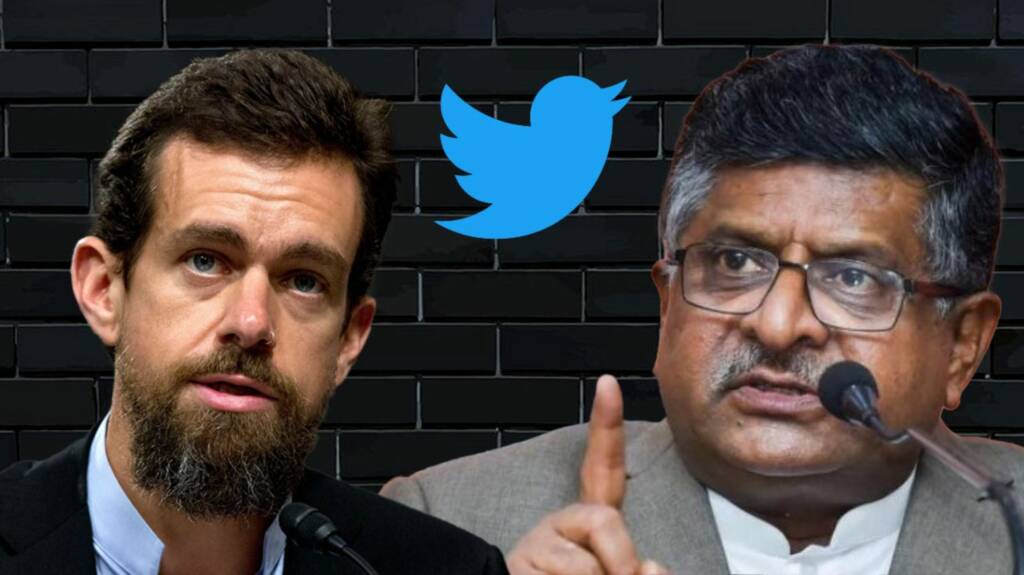Twitter and the Indian government are at loggerheads with each other. On Wednesday, a meeting between senior Twitter officials and the IT Secretary of India, in which the American microblogging site was thrashed left, right and centre for its little to no respect for the country’s parliamentary laws. Twitter has been placing its own policies above Indian laws, which has inevitably irked the government. Therefore, the Modi government pulled no punches while lambasting Twitter for its bias. In fact, the microblogging site was also reminded of its differential approach of tackling incidents of violence in the U.S. and in India.
Demolishing Twitter’s arguments against blocking incendiary accounts, the government’s statement read, “Spreading misinformation using an incendiary and baseless hashtag referring to ‘farmer genocide’ at a time when such irresponsible content can provoke and inflame the situation is neither journalistic freedom nor freedom of expression.”
“The Govt. conveyed to the Twitter leadership that the manner in which Twitter officially allows fake, unverified, anonymous and automated bot accounts to be operated on its platform, raises doubts about its commitment to transparency and healthy conversation on this platform.”
Secretary reminded Twitter about the “action taken by Twitter during the Capitol Hill episode in the USA and compared that with the disturbance in Red Fort in India and its aftermath. He expressed dissatisfaction over Twitter’s differential treatment in the two incidents.”
We all remember how quick Twitter was to act in the wake of the Capitol Hill violence in Washington D.C. on January 6 this year. The microblogging site permanently de-platformed/blocked a sitting U.S. President from using the medium, even while it continued in its unilateral crusade to stifle the voices of conservatives and Trump supporters. With ‘farmers’ running a free riot in India’s national capital on January 26, the microblogging site was seen taking no visible action.
Monique Meche, vice president, Global Public Policy, Jim Baker, deputy general counsel and vice president (legal) represented Twitter at the meeting while the Indian government was represented by IT Secretary Ajay Sawhney. Twitter representatives were told that India has a robust mechanism for protection of freedom of speech and expression. But freedom of expression is not absolute and it is subject to reasonable restrictions as mentioned in Article 19 (2) of the Constitution of India. “Various judgments of the Supreme Court have also upheld this from time to time,” the ministry said in its statement issued late on Wednesday.
Kambal Kutaai of Twitter by @narendramodi Government. Tells Twitter to behave itself, while also reminding the platform that India has well noted the partiality with which Twitter acted after the Capitol Hill violence, while turning a blind eye to the January 26 violence in Delhi pic.twitter.com/G5erIWWr1y
— Sanbeer Singh Ranhotra (@SSanbeer) February 10, 2021
Twitter was told by the government that it was not siding with ‘freedom of expression’ but was encouraging those who seek to abuse the freedom to provoke disturbance to public order. The Google ‘toolkit’ issue was also raised in the meeting and the microblogging site was told that it is unacceptable that the platform was being used to defame India as part of a strong social media campaign being planned outside the country. The IT Ministry also scolded Twitter for allowing fake, unverified, anonymous and automated bot accounts to be operated on its platform.
The government had sent multiple notices to the American company, directing it first to block over 250 accounts linked with using a provocative hashtag. Then, the country’s IT Ministry also asked Twitter to ban over 1000 accounts, both domestic and international, who appeared to be part of an orchestrated campaign to defame India. Twitter failed to comply with the directives, or complied as per its own convenience – infuriating the Modi government.
The Indian government went to the extent of telling Twitter that non-compliance of its orders would invite seven years jail time, and a hefty monetary fine as well. Then, Koo – an indigenous microblogging platform saw tremendous rise, with senior government ministers and officials joining it. The IT Ministry has begun posting updates on Koo first, followed by Twitter. This made it abundantly clear that non-compliance to government directives will very well result in the American company losing its Indian market, which is why it requested the government to hold a meeting.
